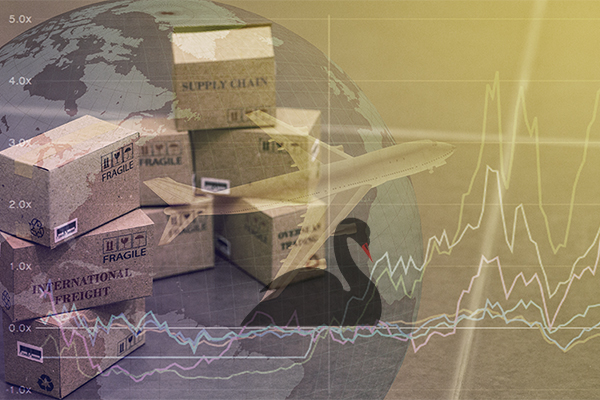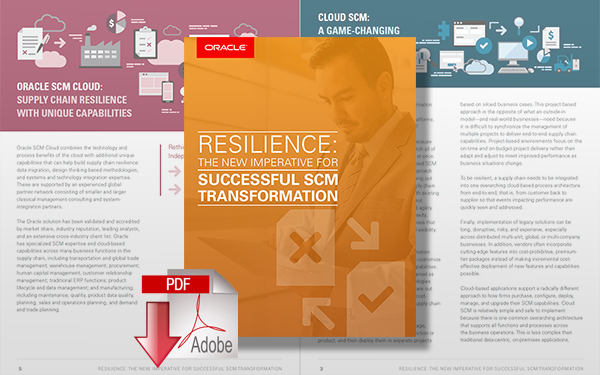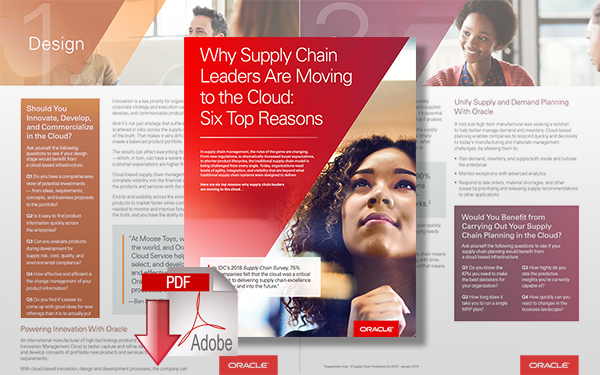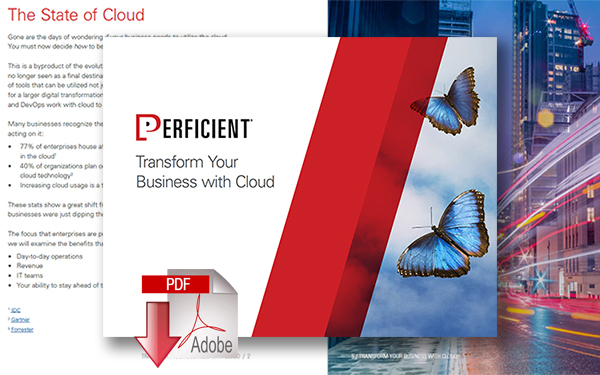Resilient Supply Chains in a Politically Uncertain World

A dearth of supply chain suppliers is what global companies are now contending with, and unfortunately, there is no easy way out!
The Resilient Supply Chain
Today, the supply chain world iterates faster than at any other point in history.
Disruptions - whether related to climate change, trade wars, or a no-deal Brexit - are a given, and black swan events aren’t surprises anymore.
We know that the next event is coming fast and supply chains will have to react.
So why have we not burned that understanding into our business DNA? Why are we still trying to leverage strategies developed 50 years ago and technologies unaligned to today’s needs?
What I mean is that every supply chain, everywhere, should be prepared at a moment’s notice to shut down, pivot, and spin up whatever operations it needs to, wherever it needs them.
I’m of the strong opinion that if supply chain professionals reframe their thinking and look at uncertainties as opportunities then they will thrive.
This thought came to me while reading an article on US trade disputes with China, or maybe it was an article on Brexit.
While I understand how conflicts arise, I have a hard time accepting why they are as adversely impactful to supply chains as they are.
Contingency planning should cover for every possibility, and the overreliance on any single supplier or region is not smart business anymore.
If the year was 1492 or 1839 or 1979, I could understand the desire to optimize a linear supply chain. That’s not the case today.
With the advent of cloud technology and the reality of global markets - fallout from any one country’s instability or trade war can be mitigated.
Three Legs of a Resilient Supply Chain:
- Availability: For systems to work they need to be ON. As long as power and cloud servers exist, then a supply chain cannot be existentially threatened. With a working machine (desktop, laptop, or mobile) and internet access, there is real-time availability of inventory and financial data. This guarantees peace of mind during political upheaval or even catastrophes. If a location is wiped out, access can be picked up and restarted, instantaneously.
- Operational Flexibility and Configuration: Facilities available on a single network eliminate siloes and allow for customized configuration. If a site has to shut down because of a new tariff or a coup, supply chains can respond by shifting operations to alternate facilities immediately. For example, if one large centralized DC needs to be suddenly spread out over smaller ones or vice versa, a supply chain should be able to configure this without going through a costly infrastructure server setup. Businesses can spread out or condense operations however they need to - to react to political happenings.
Furthermore, businesses can collaborate with vendors to rearrange the flow of products based on new facilities or distribution points. While there will be additional expenditures to rearrange the flow of goods, that’s a lesser evil than a total shut down. With operational flexibility, businesses have the capability of breaking shipments in a way that will help guarantee the flow of goods to end consumers. Using networked interconnectedness means supply chains never have to give up control of how they manage inventory. - More Control Control is based on visibility, on knowing and seeing exactly where inventory is all the time. Integrated supply chains can provide a single view of inventory across an entire supply chain network.
What About Lost Goods?
Declare them lost, minimize losses, and deal with the repercussions.
Over the last two generations, western economies relied on an uncompetitive market to produce goods, and since 2010 the world has effectively been relying on an industrial monopoly.
It may have seemed like a good idea to rely on a single, cheap source of manufacturing fifty years ago. However, by choosing this path, countries damaged their own manufacturing economies.
They also exposed themselves to the exclusive possession and control of that same, supplier. That’s when the system naturally started to collapse. And that’s when the world began to see price-fixing and currency manipulation, among other signs of deterioration. What would you do if you ran a monopoly?
A dearth of suppliers is what companies are now contending with. There is no easy way out.
We were addicted to a controlled model - for manufacturing and replenishing goods to our respective markets. As businesses and supply chain leaders, we will all need to invest in creating a truly digital, global network and reshape global trade in a way that reflects modern reality.
We live in an age of disruption…or we live in a dynamic global economy. It all depends on how you look at it.
Either way, the one thing every business needs to accept is that cloud strategy is not a coincidence and disruptions can be mitigated with sound cloud strategies and advanced technologies that are aligned, integrated and extendable from manufacturing to store shelves.
About the Author
Diego Pantoja-Navajas is vice president of WMS Product Development, Oracle(Founder and former-CEO, Logfire)
Related Article: Why Supply Chain Leaders Are Migrating to The Cloud
Download Related Papers
Resilience: The New Imperative for Successful Supply Chain Management Transformation
In this eBook we describe how supply chain resilience is used to; transform to support an outside-in, demand-driven operating model, respond to demand rather than forecasts and adjust to unexpected changes while still meeting service levels. Download Now!
Why Supply Chain Leaders Are Moving to the Cloud: Six Top Reasons
In this ebook, we detail the top six reason supply chain professionals are moving to the cloud and why cloud migration offers the flexibility and visibility you need to spot opportunities for growth and profit. Download Now!
Transform Your Supply Chain Business with Cloud Technology
In this guide, we examine the benefits that the cloud will bring to; day-to-day operations, revenue, IT teams, and your ability to stay ahead of the curve – and your competitors. Download Now!
More “Cloud” Resources
Article Topics
Oracle News & Resources
Future-proofing with warehouse management systems (WMS) Enterprise Resource Planning Gains Ground Into the Supply Chain Management Sector The CFO’s Guide to Planning and Analysis The 7 Habits of Highly Effective CFOs Oracle introduces new capabilities for its Oracle Fusion Cloud SCM offering The 80/20 CFO Supply Chain Management (SCM) Software Update: SCM keeps the supply chain wheels turning More OracleLatest in Supply Chain
Indiana Tests Futuristic Highway that Can Charge EVs While Driving Nike Signs 20-Year Lease on New UK Supply Chain Hub The Impact of Amazon Business Prime on Procurement Efficiency Week in Review: Baltimore Bridge Price Tag, FTC Fines Williams-Sonoma, and More Maersk Opens New 90,000-Square-Foot Airfreight Gateway in Miami GXO and Conair Open Maryland’s Largest Distribution Center Shipping Dispute Heats Up: Peloton vs. Flexport More Supply Chain
















